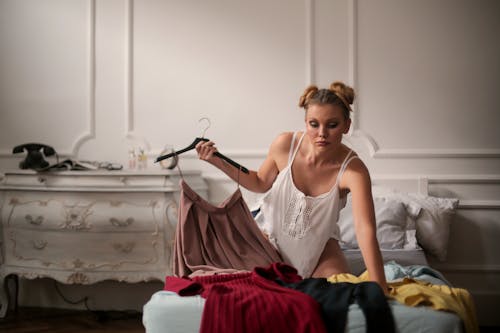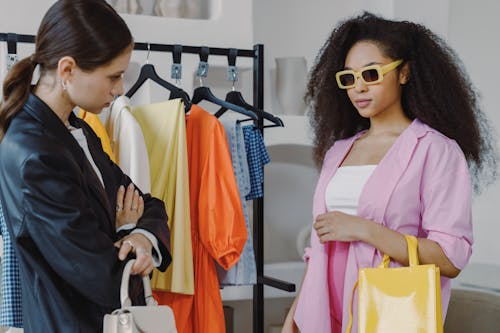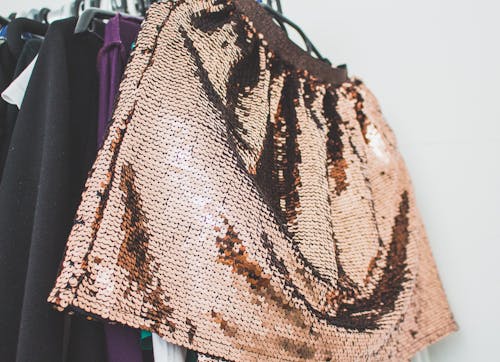
Shopping sustainably: How to make your wardrobe last
Overconsumption is a major issue facing all fashionistas and shopping enthusiasts in today’s world. With fast fashion consumption at an all time high, it’s more important than ever to be critical of our shopping habits and aware of the impact that our actions have on the system and therefore environment as a whole.
Taking steps to find alternatives to our regular fashion practices is the key to setting ourselves on a path to ending the ever-spinning wheel of fashion cycles and trends. Making a conscious switch to slower, more sustainable fashion will it affect the decisions you make as a consumer and force you to really think before pressing that order button.

It’s easy to look at consumers as a whole and think that as one person, we don’t make a difference. But analysing how all consumers play a part in the cycle and how to get out of the endless trend cycle gives us the dose of reality and the sharp shock needed to move away from habits that don't prioritise ethical fashion practice.
It’s all about starting small and building up to better habits, so we’ve put together some of our best tips to help you move away from impulse buying and trend-chasing so you can have a fully functional and fashionable wardrobe while whittling down the environmental cost. Next time you’re considering purchasing something, do a quick run through of these criteria in your head:
Would I pay full price for this item if it wasn’t on sale?

We’ve all been there and this is particularly true with winter sales. We see a stunning pair of shoes, a pair of heels, let’s say and we simply have to have them. They’re €60, which is great because they’re down from €120 – if you’d seen them for €120, would you still be running to the till with them?
Would you pay €120 for heels that you probably won’t wear super regularly? Are they practical, work shoes that are worth splurging on? Or are they just attractive because you feel you’re getting a good deal? Sometimes, you really are getting a great bargain, like if it was something you needed anyway, like a good pair of proper work heels – but if not, you’re likely buying something for the sake of seeing it on sale for it to languish in the back of your wardrobe for the next few months.
Do I have something similar already?

I’m so guilty of this because I have a certain style and like to ‘stock up’ as it were. But if you’re buying good quality items, there should be no need to ‘stock up’. Do you really need another midi dress with a leopard pattern, or do you just need to rethink and restyle how you’re wearing your current one? Do you need another pair of boots or are these just a trendy update on this season’s style?
If you have a solid set of your basics, it’s important not to add on unnecessary bulk to your wardrobe in duplicates. We should be striving to invest in a quality and timeless style of clothing that doesn’t require us to buy varying versions of the same thing.
Will this pair with five or more items that I already own and will I still be wearing it in 2 years’ time?

Ah, this old trap. We’ve all fallen into it – seen something in a magazine or in a shop window that looks stunning and current and we simple need it to bring our wardrobe up to tis season’s fashion standards.
But it’s niche and trendy, like those sweater vests or the satin slip dresses – both gorgeous, but how often are you going to wear them in a year’s time and do they actually pair with anything else in your basics wardrobe? If they do, then great, go for it! But if you know when you’re buying it that you have one specific outfit in mind for it, and can’t picture it with anything else, it’s likely fashionable, but not stylish. AKA, trendy, not timeless.
Is this a quality piece that will withstand the test of time?

If the fabric doesn’t feel high quality or it looks like a spin or two in the washing machine would ruin it. This is probably not a piece worth buying. If we’re investing in good pieces, there should be a durability to the fabric that means you can wear it for years to come and a timelessness to the style that means it will be in style for years to come.
For example, a good pair of winter boots that are a) a simple and neutral colour that will go with plenty, b) are made from a durable and hardy fabric like leather and c) are in a style that isn’t everywhere right now like thigh-high or lace-up, then that’s a solid boot that will see you through plenty of winters. Some shapes are just classics, like the A-line skirt, the knee-high boot and the polo-neck jumper. So standing the test of time is not only an issue of good fabric but also of style.






